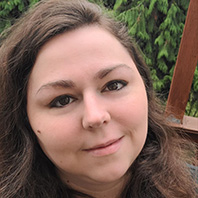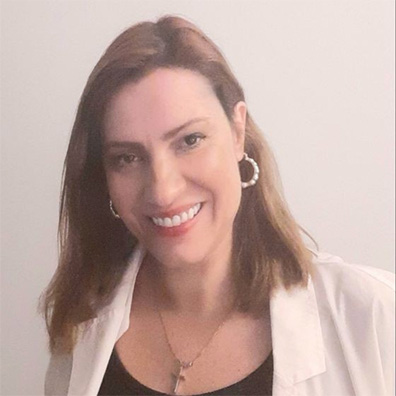Building & Finding Support Systems for End-of-Life Care

Navigating the end-of-life period can take an emotional toll on everyone affected directly by the person – for them, certainly, but also friends, family members, and caregivers. It’s normal for anyone touched by the person facing life’s final stages to need extra emotional and physical support during this difficult time. However, finding that support system isn’t always as easy as asking those closest to you. In some cases, additional professional support may be helpful, or even necessary.
Key Takeaways
- Support systems provide practical and emotional assistance to those who need it.
- During the end-of-life period, those facing their diagnosis may need different support than their caregivers.
- Caregiver support is critical in avoiding burnout while caring for a loved one.
- Always ask your medical team or hospital’s patient resources department for help finding support in your area.
What Is a Support Social System?
A support system is a group of people who provide emotional, mental, and practical assistance when needed[1]. It likely consists of your friends and family members. However, health care professionals and hired help may also play critical roles in supporting those facing end-of-life and their caregivers[2].
In some cases, community resources provide additional end-of-life support, pooling together to aid someone in need.
What Are the Benefits of a Support System?
Primarily, support systems help you manage your stress while encouraging a sense of well-being. If you’re facing your own end-of-life period, you may rely on your support system to provide assistance with daily living activities or chores you can no longer manage on your own.
If you’re a caregiver for someone with a life-limiting diagnosis, your support system plays a critical role in preventing you from developing burnout. They may listen to you when you’re stressed or offer help with tasks that have been put on the back burner while you focus on your loved one.
Regardless of your role in the end-of-life period, a support system can be beneficial. Sometimes, all you need is someone to sit and listen to how you feel to help your mental state[3].
How to Build a Support System When Facing End-of-Life Decisions
Everyone should build a support system. However, it’s especially critical during difficult times, such as the end-of-life period. Those currently facing the end of their life and caregivers or family members benefit greatly from support. However, building it can look a little different depending on your role.
For Individuals Dealing With End-of-Life
If you’ve received a terminal diagnosis, you may be feeling a range of tough emotions, such as grief, anger, or anxiety. You also might not be as independent as you once were. Support during this time is critical to your well-being.
You can turn to your friends and family members for emotional assistance. However, sometimes, that isn’t enough. You may need professional support from a hospice team or a counselor well-versed in handling the end-of-life period. In cases like these, your medical team may have resources to help you find connections with other professionals who can help.
If friends and family aren’t enough to help emotionally or you feel like they don’t understand, you may be able to find grief support groups of peers facing similar prognoses in your area[4]. Hospitals often have patient resource centers that connect you with people who can relate to your situation in a way your family members may not be able to. You may also find support groups online if you aren’t mobile or live in a rural area.
You may also need more practical support than your family can provide. In these cases, hiring professional helpers, such as a home health team, can boost your support system. They can help you manage your health and activities of daily living.
Social support can be divided into three forms: instrumental aid (providing tangible aids, such as transportation), emotional support (offering empathy and a sense of belonging), and informational support (to empower decision-making, for example). Each form aims to reduce stress, promote resilience, and provide support during challenging times.
Dr. Brindusa Vanta, MD
For Caregivers and Family Members of a Dying Loved One
Support systems for caregivers and family members tend to look different from those focused on someone nearing the end of their life. Often, caregivers need access to resources and practical information that can help them care for their loved ones. They may also need someone who can sympathize with them or listen as they vent.
In many cases, both online and in-person caregiver support groups are available. Your loved one’s hospital or medical team may also have resources that cater to your specific scenario. Peer-led support groups can provide significant psychosocial support and may be hosted at libraries, local community centers, or virtually.
Depending on your loved one’s diagnosis, you may be able to find more focused support groups, such as those hosted by the Alzheimer’s Association[5]. If your loved one is elderly, your local Area Agency on Aging may also be able to help[6]. These agencies provide direct support to caregivers, including access to respite care, counseling, and education.
How to Find a Support System to Help You Cope With End-of-Life Grief
During the end-of-life period, it’s normal to experience grief. That grief can make functioning more challenging, increasing the need for a solid support system. If you’re struggling to cope, you can find extensive professional support, including therapists, counselors, and hospice care teams.
Licensed medical health practitioners, such as therapists and counselors, provide mental health support using scientifically evaluated techniques. However, choosing the right professional is essential. You may not click with the first one you try, and it can take some time to find someone you get along with, like, and trust enough to open up about your feelings. Look for mental health professionals in your area who are well-versed in grief and, if you’re a caregiver, dealing with potential burnout.
You may also want to consider which type of therapy might benefit you the most. Cognitive behavioral therapy (CBT) is commonly used to help people cope with grief and loss. Acceptance and commitment therapy (ACT) can also help you cope with grief by learning to embrace it instead of constantly trying to fight it[7].
Dignity therapy has been found to improve end-of-life experiences and support caregivers as well. This therapy involves trained professionals asking specific open-ended questions, helping patients to share important memories, hopes, and life lessons with loved ones, promoting meaningful connections and closure.
Dr. Brindusa Vanta, MD
Beyond professional support, you may turn to community resources for help. Support groups can be particularly beneficial for those struggling with their situation.
In some cases, religious organizations can provide practical and emotional assistance. Some people feel immense comfort embracing religion, especially during the end-of-life period, and spiritual care is often a critical part of palliative care or hospice. Your family or loved one may have religious rites or traditions they wish to follow. A spiritual care coordinator or chaplain can assist you during this time[8].
Some communities also have extensive volunteer services that can help. These are commonly accessed through social workers. Your care team will likely have information about local volunteers who can provide assistance.
The End of Life Doesn’t Have to Be Lonely
The end-of-life period can feel lonely as you grieve, but it doesn’t have to be. A robust support system can go a long way in helping you and your loved ones find peace and access the help you need, whether practically or emotionally. When you build a support network through peer groups, professionals, or friends and family members, you’ll know you can rely on them when you need them the most.

Written by Serena Tanner
Serena Tanner attended the University of Washington, where she earned a degree in philosophy after many detours delving into human rights, law, psychology, and social work. Health and holistic wellness topics continue to hold a special place in her heart. When she's not reading or writing, she can be found exploring the Pacific Northwest with her two children and dogs.

Edited by Tracey Rosenblath
A writer and editor with a strong passion for editing, Tracey authored the Project 2000 Black Book for Coriolis Technology Press and, alongside Michael Meyers, co-authored the first edition of the A+ Certification Passport for Osborne/McGraw-Hill. She now focuses her expertise on editing just about anything, from technical pieces to fiction. A strong generalist, she believes there's nothing more satisfying than taking words on a page and manipulating them into something better than they were before.

Subject Matter Expert Brindusa Vanta, MD
Dr. Brindusa Vanta is a healthcare professional, researcher, and medical subject matter expert . She earned her MD degree from "Iuliu Hatieganu" University of Medicine, Romania. She has a special interest in mental health and has collaborated with psychologists and other mental health practitioners on various research projects focused on therapies to manage depression, age-related cognitive decline, trauma and stressor- related conditions.
Sources
University at Buffalo School of Social Work. (n.d.). Developing your support system. Sourced from https://socialwork.buffalo.edu/resources/self-care-starter-kit/additional-self-care-resources/developing-your-support-system.html
National Center for Biotechnology Information. (2022). Social support and health. In Principles of health and social care practice. Sourced from https://www.ncbi.nlm.nih.gov/books/NBK585650/
Johns Hopkins Medicine. (n.d.). Social support systems. Sourced from https://www.hopkinsmedicine.org/about/community-health/johns-hopkins-bayview/services/called-to-care/social-support-systems
Fred Hutchinson Cancer Research Center. (n.d.). Support groups. Sourced from https://www.fredhutch.org/en/patient-care/services/support-groups.html
Alzheimer’s Association. (n.d.). Support groups. Sourced from https://www.alz.org/help-support/community/support-groups
USAging. (n.d.). Support for caregivers. Sourced from https://www.usaging.org/caregivers
The Ohio State University Wexner Medical Center. (n.d.). Therapy vs. counseling: Is there a difference? Sourced from https://health.osu.edu/health/mental-health/therapy-vs-counseling-is-there-a-difference
Marie Curie. (n.d.). Spiritual care in palliative care. Sourced from https://www.mariecurie.org.uk/professionals/palliative-care-knowledge-zone/individual-needs/spiritual-care